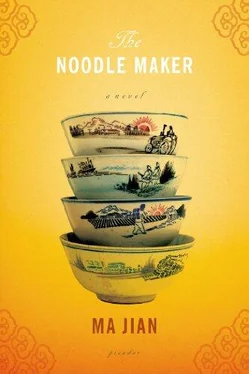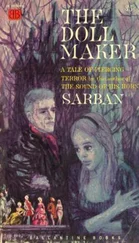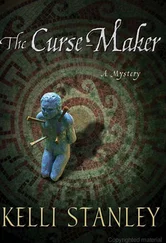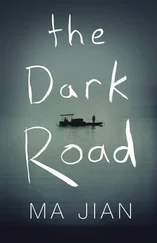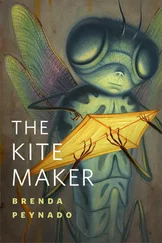Four balls of light gaze at the foreign, blue flame. Then suddenly the flame goes out.
‘How much did that cost you?’ the voice on the right asks.
‘It’s filled with gas. If you meet a woman who smokes, just light her cigarette with it and she’s yours.’
‘We should think of women in the same way as we think of cigarette lighters,’ says the voice on the right. This lighter of mine is too old, he thinks to himself. It’s time I got myself a new one.
The two shadows fall silent in the black room. The darkness drags them back to their memories. A picture of the actress flashes before their eyes, or through their bodies.
The one on the left says: ‘Sex is a good thing. It turns love into an action.’
‘I don’t think women attach more importance to sex than men. They are emotional creatures. If they feel no affection for you, their bodies become as hard as wood.’
‘Not everyone can see things like you do. But if I could write, I’m sure I’d be a better writer than you. I know about the real world. You just write in order to fill your inner void, you have no experiences to draw from. You see life in terms of tragedy and myth. You are obsessed by your fear of death. But death is something everyone has to go through, there’s nothing particularly interesting about it.’
‘Corruption and secrecy have become the only laws in this country.’
‘You could never keep to those laws,’ the one on the left says. ‘You just shut yourself up here, living in fear, blaming everyone else for your troubles. You would never dare jump into the thick of things and try to change your life, or to strive by any means possible to save yourself.’
‘The law only protects those in power. The rest of us are doomed to play the victim.’
The Possessor or The Possessed
Every morning, he woke up beside his wife and counted the hours until his next adulterous tryst. The amorous longing seeped into his body like alcohol, allowing him to savour the numbness of his flesh and the trembling of various organs. He felt as though he were luxuriating in some magical Garden of Eden.
Had the textile worker not ruined everything, perhaps he could have gone on with his life — at least he would still be sitting behind that chief editor’s desk of his, listening for the postman’s footsteps that heralded the morning delivery of love letters that poured onto his desk like wine, ready for his slow delectation.
Ever since the editor of the town’s bi-monthly literary magazine found this new way out in life, he would arrive at his office in the milky hours of morning, carefully make himself a cup of tea, pick up the hairs (mostly white and grey) that had fallen onto the desk, discreetly push the letters addressed to ‘The Editor’ to one side (note: there was no audience for these actions, he was performing them purely for himself), then through the corner of his eye he would scour the envelopes, searching for a handwriting he recognised or was waiting for. After rubbing a finger across the wrinkles at the corners of his eyes to remove the grains of dried mucus, his eyes and head would briefly dart in opposite directions, like a cat that deliberately looks away before it pounces on its prey. He would then remove his fashionable new leather shoes, pull open the lowest drawer of his desk to act as a footrest, and spread out a copy of the People’s Daily to hide his bare feet from the view of anyone who happened to enter the room. Next, he would swing from side to side on his revolving chair, allowing his small body to create a satisfying level of noise, lean his head back on the chair’s headrest and stare up at the ceiling. As his bony shoulders slowly relaxed, he would rub moisturising lotion into his hands, which were dry and wrinkled from years of cooking and washing-up, and only then would he finally begin to open the letters.
Sometimes, as the editor left the magical world of love letters and returned to real life, he would wink repeatedly and flutter his eyelashes. He had read that these exercises helped people regain their youthful demeanour, or at least gave their facial muscles an expressive tone. This was extremely important to a man over fifty who had only recently embarked on a secret love life. He often ground his teeth on his way to work, gnashing his jaws together in time with his steps. This exercise prevented him from falling into a daydream — and also improved his looks.
As soon as he opened the envelopes, he could tell from the handwriting whether it was a manuscript or a love letter. He had three drawers filled with love letters sent to him by young female writers. Some were from serious authors who simply wanted to be published; some from impressionable young girls hoping to fall in love; others were from young women whose respect for his literary talents had developed into an amorous infatuation. Over the previous two years, the editor had published in his magazine such poems as ‘The Road in Life is Twisted’, ‘You Have Left Me, But I Cannot Leave You’, ‘Yet Another Sunset’, ‘An Autumn Leaf Blows Softly into the Window of My Heart’, and had succeeded in having his way with each sentimental girl who had written them. He understood that to get young women to fall into his net, he only had to spout a few pompous statements on the meaning of life, and add a new column to his magazine entitled ‘New People, New Poems’.
When selecting his prey, he always chose poetesses, and avoided female novelists like the plague. His life’s experience had left him with a biological fear of female novelists. He made a point of insisting that everyone submitting a manuscript should enclose a photograph and curriculum vitae. Over the past two years, he had developed an expert ability to guess, just by looking at the handwriting and photograph, which woman would fall into his trap. Experience had taught him that plain women were usually the most talented, and that their gracefully written words often conveyed a sharp sense of observation. Women who wrote about blue skies, rosy clouds and fields of grass were the first to swallow his bait, but they usually had other men in the background and were fickle with their affections. He tended to focus his attention on the melancholy girls who liked to write about sunsets. Their poems invariably included references to wooden cottages in the snow, the last leaves of autumn, teardrops, ‘that night he kissed me’, and ‘a cup of black coffee with no sugar’. Women of this category were average looking, and since most of them came from troubled homes or had suffered heartbreak in the past, they harboured fantasies about a happy future. He knew how to exploit their weaknesses, and give them the kind of love they yearned for. They were used to being let down and deceived, so when the time came to cheat on them, they let go without a fuss. Apart from the young illustrator from the textile factory, who ended up clinging to him like a leech.
Mornings were an important time for him, and he devoted himself to his tasks with complete attention. By four in the afternoon though, his mind would drift into a series of fragmented and inconsequential dreams. (The professional writer considers that the editor’s dreams were similar to the flights of fancy his own mind takes when the blood donor’s conversation begins to tire him, or when his leader is chairing a meeting at the Writers’ Association.) When he felt himself falling into a daydream, the editor would pretend to be reading the manuscript in his hand, his eyes skimming from one line to the next, or fixing on a particular sentence. His dreams were like a passer-by who just stays long enough to smoke a cigarette, then gets up and walks away.
One afternoon, he dreamed he was trudging through a river of faeces. (The professional writer smiles to himself in his darkened room.) This image was no doubt a subconscious reaction to his excessive indulgence in romantic fantasies. He liked to weave into his dream a few flattering phrases from the love letters he received, bathing himself in a stream of compliments. ‘You are the only man in the world,’ he would hear the women whisper. ‘A man of strength. The most important person in my life. I can’t live without you.’ ‘You are a genius of unbridled talent, the great helmsman of the literary world.’ He gained spiritual strength from these adulatory words, and for the first time in years, enjoyed a sense of self-respect.
Читать дальше
